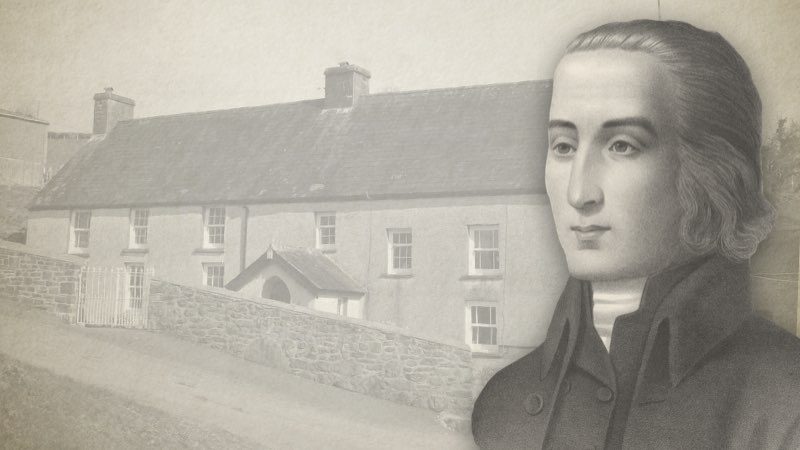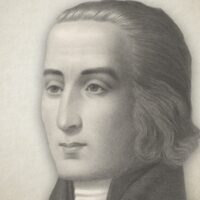
The Life And Ministry Of William Williams
John Gadsby, “Memoirs Of The Principal Hymn-Writers And Compilers Of The 17th, 18th and 19th Centuries”:
William Williams was born, in 1717, at Cefnycoed, in the parish of Llanfair-ar-y-bryn, Carmarthenshire. He was well educated, as he was intended for the medical profession. “His religious feelings,” says his biographer, “were at first painful. His convictions of sin were deep and alarming; but his subsequent joy proportionably high.” In 1740 he was ordained a deacon by the Bishop of St. David’s, and had the curacies, for three years, of Llanwrtyd and Llanddewi Abergwesin. Whitefield, with whom, and the other Methodists, including the Countess of Huntingdon, he became intimate, encouraged him to become an itinerant preacher, and the bishop consequently would not give him “full orders.” He did not suffer so much as some of the Methodists did; but he was more than once in danger of losing his life. His labors were perpetual and were greatly blessed. He is said to have travelled on an average 2,230 miles in a year for 43 years and travelling, it must be remembered, was not then so easy as it is now. There were no railroads, and but few stage-coaches. His final illness was caused by study, while writing a work entitled, “A View of the Kingdom of Christ.” In his last moments his speech failed him but he is said to have been in that happy state of mind as to cause those present to exclaim, “May we die the death of the righteous, and may our latter end be like his.” He died Jan. 11th, 1791, at Pantycelyn, and was buried in the churchyard at Llanfair-ar-y-bryn. Williams was justly called the Welsh poet. His hymns are now much used in Wales. The first book he published was called “Hallelujah.” In 1762, his book of hymns, called “A Sea of Glass,” was issued. He afterwards published other little books. He also wrote several prose works, and, in 1772, a small hymn book, “Gloria in Excelsis,” (Glory in the Highest,) which was intended for Whitefield’s orphan-house in America. In this book is the following very appropriate hymn: “O’er the gloomy hills of darkness.”
In 1759 he wrote a little book, called, “Hosanna to the Son of David.” His hymns, “Guide me, O Thou great Jehovah” and “Jesus, lead me by Thy power” are well known. The former is said to have been translated by Mr. Middleton, and first published in 1793; but this cannot be, as I found it in Madan’s book, dated 1776. Beyond doubt, however, it is Williams’s. Mr. Morgan, vicar of Syston, Leicestershire, from whose account of Williams I have extracted much of the above, says that a Mr. Harries is about to publish all Williams’s hymns. I should much like to see them. In Evans’s “Sketch of all Religions,” Williams is said to have belonged to the Jumpers, a sect which sprang up in 1760; but this is not true.
William Williams (1717-1791) was a Calvinist Methodist preacher, author and hymn-writer. Among his friends were George Whitefield and the Countess of Huntingdon. He is known as the Welsh poet, having written many hymns, published in 1762 entitled “A Sea of Glass”.



